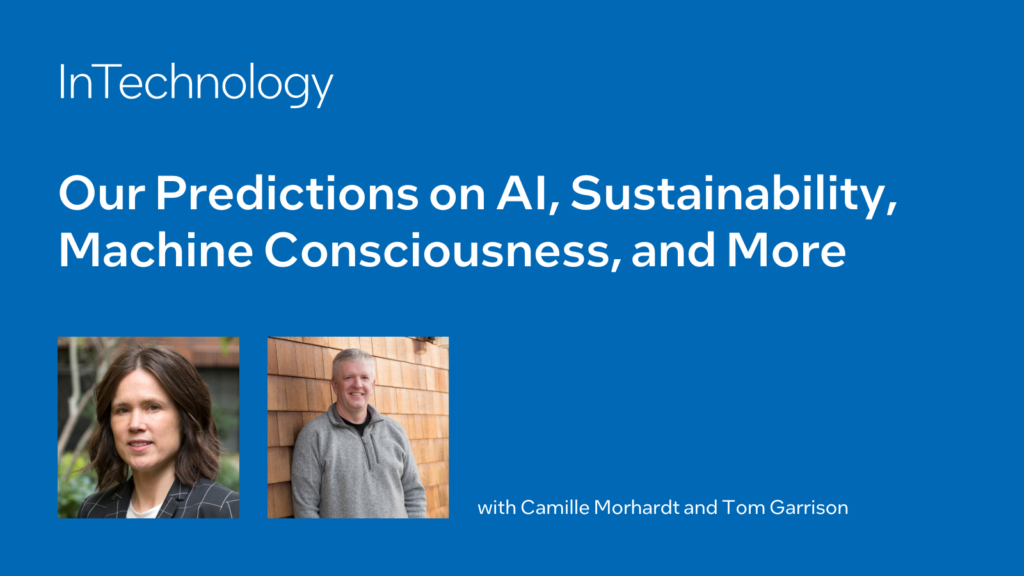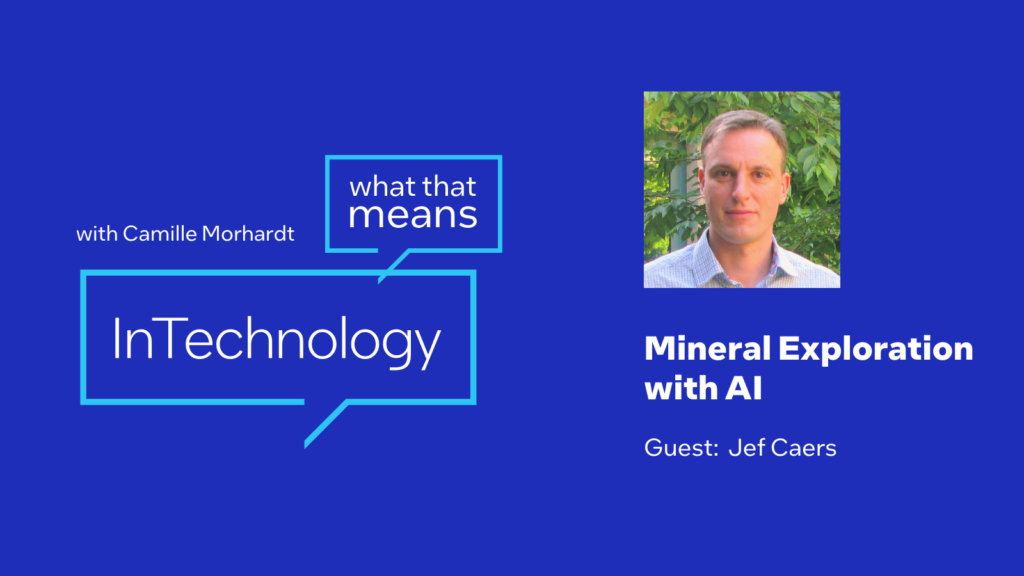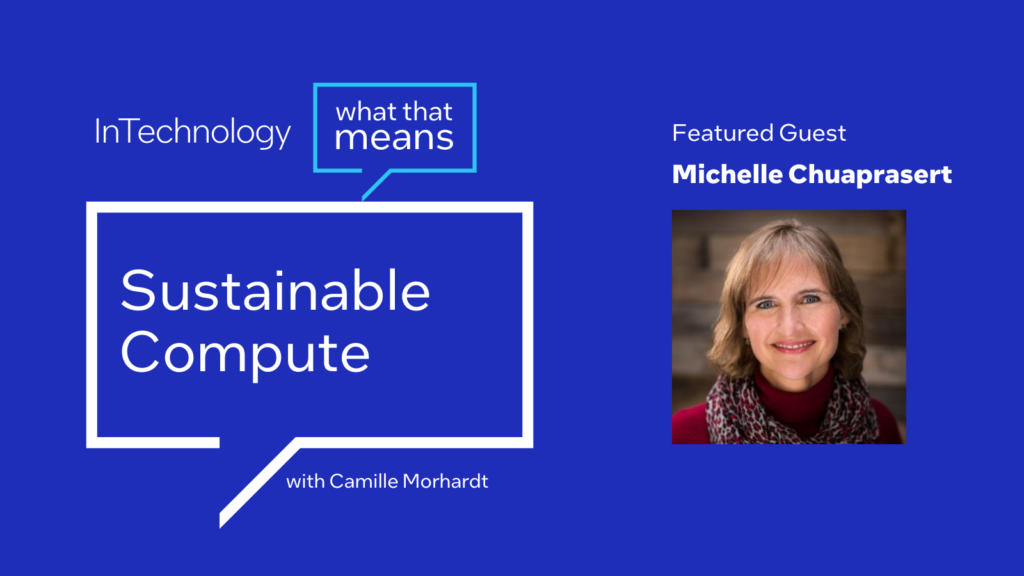[00:00:37] Camille Morhardt: Welcome to today’s podcast of Cyber Security Inside. Today, we are going to talk about What That Means: Indigenous Data Sovereignty. I have three people with me today. We have Dawn Nafus, who’s an Anthropologist and Senior Research Scientist at Intel Labs. We have Bobby Maher, who’s a member of the Maiam Nayri Wingara Indigenous data Sovereignty collective in Australia, joining us from Australia. And we have Karaitiana Taiuru, who is a Maori Indigenous Data Specialist joining us all the way from New Zealand. Welcome, everybody.
[00:01:13] Guests: Thank you.
[00:01:15] Camille Morhardt: So, I think we’re going to have to start the old fashioned way and just ask one of you to define indigenous data sovereignty.
[00:01:23] Bobby Maher: Sure. I’m happy to kick it off. So, I just want to acknowledge that I’m calling in from the traditional lands here of the Ngunnawal and Ngambri peoples in Canberra and just to pay my respect to their elders past, present, and emerging. So, the way in which we define indigenous data sovereignty is the right of indigenous peoples to govern the collection, ownership, and application of data about indigenous communities, peoples, lands, and resources.
[00:01:58] Camille Morhardt: Thank you. So, my first question is why does this need to be looked at or considered differently than collecting data of any other human being? Why is there even a term, indigenous data sovereignty?
[00:02:15] Bobby Maher: Yeah. I think, Camille, historically, for indigenous people’s data has been weaponized against us. So, it’s been used as a mechanism to exclude us, to portray us in a very deficits and problematic lens. We have been invisible really in the production and the re-use of data about us.
[00:02:43] Camille Morhardt: So, when we think about data collection, is this amplified in the world of artificial intelligence and just internet collection of large quantities of data. Has this always been an issue, or is it a more recent issue?
[00:03:02] Karaitiana Taiuru: Yeah. It’s always been an issue. But I think, traditionally, at least for Maori, it’s not been an issue that’s been discussed because we’ve always been fighting for social inequities, health inequities, getting land back, and basically fighting racism in the system. And they’re all things that you can physically see, things that you deal with every day. Yet, when it comes to data, that’s not something you really see or know about unless you work in the digital area. So, it hasn’t really been an issue at the forefront for Maori up until about maybe four years ago.
[00:03:41] Camille Morhardt: So, one of the things that Bobby mentioned to me in prior conversation is it’s not just about collection of data and stewardship of data. It’s about even the constructs that the data is being looked at. And I’m wondering if you guys can go into a little bit more detail on that? Just a little bit more just to kick that off. I think a lot of people in the tech world, at least, are very familiar with as they’re building learning models in AI to be careful about bias and introducing bias. And so, I think we’re looking at this and taking it another layer down, so I want to help people understand why that’s not maybe enough.
[00:03:40] Bobby Maher: Yeah. So, from the Australian perspective, professor Maggie Walter has constantly written about and spoken about how data and the use of data sets to inform public policy is often used. She refers to it as the five D data. So what she’s talking about is differences, deprivation, dysfunctional, disadvantage, and disparity. So, data that represents those. And again, she also uses this term of “badder data,” which is about blaming. It’s about aggregating the data, de-contextualizing the data. It’s using deficits data, and its restricted access. So, we, as indigenous peoples, are not able to access that data. In particular, this thing around aggregating the data is really problematic because, as first nations people here in Australia, we are very diverse within our own nations. And so, within that diversity we will have different life-worlds, we’ll have different values and priorities. That is actually not taken into account then when particular policies and strategies are actually being developed and being implemented as a way of helping indigenous peoples. It’s not actually telling the true story of who we are as first nations people in Australia.
[00:06:15] Camille Morhardt: Karaitiana, do you have a take on that?
[00:06:18] Karaitiana Taiuru: An example for New Zealand Maori is with the COVID-19 rollout of immunization. There’s a deep mistrust by Maori populations of the health system. There’s been generations of discrimination. So, as our tribal groups wanted to use health data to visit communities that needed the COVID rollout, the Ministry of Health in New Zealand basically said, “ no, you can’t have it.” So, it ended up going to the High Court, and the High Court said that the Ministry of Health must reevaluate their decision to provide the Kiwi or the tribes the data. Because in New Zealand, we have a constitutional document called the Treaty of Waitangi, and that gives a number of protection mechanisms to Maori, including resources which include data. So, if we had access to that data early, we could have basically saved a number of Maori lives and improved the health of a number of Maori communities.
[00:07:22] Camille Morhardt: So, you’re saying that in this example, there’s maybe health information or health data collected about a certain population, or at least the data is segmented by various kinds of, I guess we could call them arbitrary or real segmentations or classifications of people. And in this case, then, the actual communities where the data is gathered no longer have access to the data that’s collected?
[00:07:49] Karaitiana Taiuru: That’s correct. That’s hosted by the New Zealand government, and despite the government having access to the data and knowing which data is Maori and which data is not Maori, it’s not shared with community providers to enhance the communities
[00:08:05] Camille Morhardt: So, another, I guess, question is there’s different kinds of privacy regulations when it comes to data that we see around the world. And I know that those are really not orchestrated or standardized globally, but there’s things in place, for example, in the EU GDPR, a general privacy regulation for individuals. Is this similar, or is there a different lens to look at this?
[00:08:34] Karaitiana Taiuru: Sure. So, in New Zealand, we have our own privacy laws. And again, we have the Treaty of White Honey, the constitutional documents, which also say that the government must co-govern and co-design with Maori. Now, if they did that with data, then all the data sovereignty principles, indigenous or Maori principles, would then be recognized. And then we would be able to share and fight inequities with, especially health data, but all data in general.
[00:09:05] Camille Morhardt: But one of the things too, that you guys were talking about the other day is, well, one thing you were saying, Karaitiana, is this notion of data belonging to an individual is maybe very, I don’t know if the right word is westernized, but culturally specific and not specific to Maori. I’m wondering if you can elaborate on that a little bit.
[00:09:27] Karaitiana Taiuru: Sure. So, prior to colonization, everything was communally owned. There was no one person-owned something. We have a concept called Kaitiakitanga, which means that you’re the guardian of a resource and it’s your role to make sure that resource is looked after and in better condition or more healthier than when you got it for the next generation. So, in terms of data, we have tribal ownership of data, and then only some data would be considered personal data, and that could be your personal health record. But then, from a tribal perspective, sharing high-level data is acceptable from a Maori perspective.
[00:10:11] Camille Morhardt: And then, one of the other questions, I think, and Bobby, you were talking about this too, was you were saying the categorization of deficit and viewing a population, asking even the way that you structure an experiment, or a questionnaire, or a survey or something, or the way that you’re looking at information or cutting data is going to then put a certain population in deficit that maybe those questions themselves are biased inherently by the culture who’s asking them. I’m wondering if you can talk about that more?
[00:10:47] Bobby Maher: Yeah. I guess the way in what we refer to as administrative data, so it’s our national statistical officers that run these national surveys when they are asking indigenous people’s questions within that survey, it’s very much framed from a Western lens. There actually has been no indigenous input into the relevance of that question, why that question is even being asked. And, I guess, one of the issues around, then, the analysis, is that we are constantly then being compared to the non-indigenous population where we have very different worldviews, and perspectives, and priorities. So, it’s never going to come from a strength-based perspective.
[00:11:43] Camille Morhardt: So, can you give an example of how something would look different possibly if that perspective were taken into account?
[00:11:51] Bobby Maher: So, we have a national study here for Aboriginal and Torres Strait Islander people. So, it’s called the Mayi Kuwayu study, and it’s a cohort study that has been set up. The director of that study is Professor Ray Lovett. And this is the first of its kind in Australia, and it’s the actual development phase of the study included going out to particular community groups to ask them questions around culture and cultural expressions. It’s a health and wellbeing survey that actually is asking about cultural elements, which is really important to Aboriginal and Torres Strait Islander people. And so, through this study, we will be able to actually do analysis and look at our own population to better understand health and wellbeing and what the relationship of culture has to do with these particular outputs and outcomes.
[00:12:57] Camille Morhardt: Yeah. That is interesting. And, Dawn, from your perspective, embedded in a major technology company, I’m wondering how you look at applying Karaitiana and Bobby’s input?
[00:13:10] Dawn Nafus: Yeah. I think the problem is that the state of the art, particularly with responsible AI, which is where I do the bulk of my work, is that it’s not, and that’s a real problem, right? So, the situation I see today is one where, by engineering colleagues across companies, as well as in my own, they’ll be able to say, sure, we can look at this in that data set and parse it by demographic categories. But that extra step that you shouldn’t be extra at all, that both Bobby and Karaitiana are talking about to then ask, wait, why and how is this data being collected at all? By whom, and to what ends? Those questions get really hard, really fast. And either they’re pushed down the chain, we don’t want to think about them, or somehow it’s magically too hard when you ask the more fundamental question. And I just see constant evidence of it getting skirted around. And the very real issue of who is data for is just so darn hard to ask. And I think, especially, when you’re talking about issues of sovereignty, where there is both cultural rights, as well as in many cases, legal rights here, that gets messy quickly.
[00:14:33] Camille Morhardt: So, I have to ask about a framework, I guess, for this, because I’m thinking about all different kinds of people whose data is collected that can then be broken down by any kind of category you can think of. I think, typically, by female-male breakdown. At least in the United States, a lot of the breakdown is by race, right? Slash ethnicity, I’ll say. There’s other ways that people break it down by education level, by income level. Those are some just common ones that I’ve seen in data.
And I’m wondering, in this case, you’re saying there is a group of people, indigenous people, or Maori people in this case, who want the right to govern and manage access to that data and have access themselves to the data that’s collected and maybe even participate in the questions being asked and the segmentation that’s being done. How does that apply to broader humanity? If you’re breaking data down by sex or gender, then how do you give that same kind of management or control to people who are not in a collective or a group that’s self-defined?
[00:15:59] Karaitiana Taiuru: I think, in terms of indigenous peoples, we all belong to community collectives and groups. So, I guess the question would be how to apply those same principles to non-indigenous peoples? But just my personal opinion is that from a Western perspective, those community groups don’t exist and aren’t applicable. So, from my Western genealogical connections, I wouldn’t want community groups having access to my data, but I’m more than happy from a Maori perspective for my Maori community groups to have access because that’s normal for me.
[00:16:36] Camille Morhardt: Bobby, do you have a similar perspective?
[00:16:39] Bobby Maher: Yeah, I think for many people, like for myself, I would feel very much the same way. Like I am living off of country. Do you know? I’m certainly not connected physically, so yeah, definitely.
[00:16:55] Camille Morhardt: That’s very interesting. And I’ll also kind of your point, Karaitiana, that it’s not applicable–this concept of data belonging to a collective–is not necessarily applicable outside of indigenous communities. I’m sure there may be an example that we’re not thinking of, but…
[00:17:14] Dawn Nafur: I mean, I can jump in in there and there. There are a couple of exceptions to that rule. I work in places where environmental health is a real problem in the US um, and that is one example where actually people do want data pooled locally for a particular reason because there’s a collective harm happening. So they’ll kind of get past all the other constraints, um, to sort of create that collectivity.
But no, it does not fall as everyone else hears and it doesn’t fall along the traditional sociological, demographic categories. It’s not about that at that point.
[00:17:48] Camille Morhardt: So it’s, it’s almost like a self-identified collective is kind of where that line is drawn. I’m trying to figure out like how you apply this in technology, because, um, is it just something that you apply then to the indigenous community that’s requesting? Or is it something that you are trying to apply more broadly? And if so, how do you understand the definition of a collective and how do people opt into that?
[00:18:13] Karaitiana Taiuru: Um, and New Zealand, Maori society is made from what you would call a tribe. And a tribe consists of a number of what you’d call clans. And clans are made up of a number of families. So in New Zealand, the way to achieve more data sovereignty in this particular area would be to use the tribal names, the clan names and the geographical locations, um, names, and then for people to opt out.
Every Maori person is born with that biological connection that some don’t choose to be Maori. Giving people the opt-out opportunity would certainly solve that issue and allow the communities to access the data.
[00:19:00] Camille Morhardt: Indigenous peoples are not a singular group of people. This applies to any group of people, right. But you’re saying specific, there’s multiple different tribes, as you said, and so, talk about how the tribes are working together on this call for data sovereignty, and then how you reconcile those differences among the different people that are in the collective together.
[00:19:28] Karaitiana Taiuru: In New Zealand, I think we have about 115 different tribes. Many of those tribes have formed a group who consult with the government. So, part of that group has a data sovereignty group. But overall, most tribes want the same things, where you want inequities to be rectified within health education, and there’s justice system throughout everything. So, it’s not really too difficult. The issues would be when the clans want specific data because it’s very, very different throughout the whole country. So, my primary geographical location, the clan there, they want data about the water system, about the ocean, that’s where we live and get our food from. Yet, another clan in the top of New Zealand live in the central forests, so their data needs to be very different because they don’t have an ocean. They don’t have the water issues that we have.
[00:20:32] Bobby Maher: Yeah. And over here in Australia, our ideas, principles only really came into effect in 2018. So we’re now at the stage where we’re really wanting to reach more broadly and work with communities and with the peak organizations who are representing communities to then see, well, how are these principles being, how can they start to be operationalized? So, certain elements may already be in effect. And again, it’s about the role that indigenous data governance plays with these principles. So yeah, it is really coming thick and fast for us. And we’re only a very small collective within the Maiam Nayri Wingara collective. And so, we’re predominantly academics working in different institutions around Australia as well.
[00:21:33] Camille Morhardt: Is there any big topic within the topic of indigenous data sovereignty that we’ve not covered in this conversation?
[00:21:41] Bobby Maher: One of the things that I just wanted to highlight, I’m part of GIDA, which is the Global Indigenous Data Alliance. That was formed, I think, in 2019. And they also developed as a collective, they developed some principles called the Care Principles. So, there are a few papers that have been written by the collective. Stephanie Russo Carroll is from the US, and she would’ve been the first author of those. But really, what it’s acknowledging are that in relation to more of the open data spaces and the big data spaces, there is this focus on what is known as the fair principles. So, that translates to findable, accessible, interoperable, and reusable. But these principles are quite data-centric. And then, when we’re thinking about indigenous peoples, we come from this place of being people-centric and purpose-centric. So, the care principles really break down to the collective benefit, the authority to control, the responsibility, and then ethics in relation to data practices.
[00:23:02] Camille Morhardt: I really appreciate the conversation, and it’s been really educational and informative to me. I had not heard of indigenous data sovereignty, and now I see it as an absolute imperative that everybody should know about in the tech world. So, thank you so much for giving us an introduction to it.



